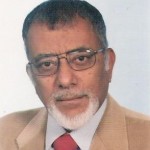Torture: Mohamedou Ould Slahi’s Guantánamo Diary
By Charles Sarvan –February 28, 2016

“Those who haven’t suffered wounds can make light of scars on others.” – Freely adapted from Shakespeare’s Romeo & Juliet, Act 2, Scene 2
Few of us have spoken with a torture-victim, much less witnessed torture, and the phrase “torture-victim” tends to remain a label which conceals rather than conveys a sense of the hapless individual who remains permanently crippled, mentally and emotionally, if not also physically. It “wasn’t me anymore, and I would never be the same as before” (p. 258). Language, as Orwell pointed out, can be used not only to express but also to sanitise reality: “enhanced interrogation techniques” sounds positive, a welcome improvement.
In ‘A Voyage to the Country of the Houyhnhnms’, it’s observed that human beings possess intelligence, but if that intelligence suffers “corruption” then the result will be “worse than brutality” (Jonathan Swift, Gulliver’s Travels). Lacking the rational faculty, no other species is able to inflict suffering (in terms of methods, intensity of pain and duration) as we can and, most unfortunately, do. Animals do not torture and gang-rape, humiliate and degrade; and to say, “They behaved like animals” is unjust to animals. Fellow human beings are degraded, and then that degraded state is used as justification for contempt and further diminuition. Having destroyed their humanity, we use the effect to justify the cause; to claim ‘they’ are not equally, fully, human, and therefore do not merit humane treatment.

Incarceration sometimes results in the writing of a book. The Consolation of Philosophy by Boethius (executed 524 CE), The Story of my Experiments with Truth by Gandhi, Discovery of India by Nehru, Letters from Birmingham Jail by Martin Luther King, Long Walk to Freedom by Mandela, The Roots of Civilization by Abdullah Ocalan are some titles that come to mind. The Kurdish leader Ocalan and Slahi are at the time of writing (February 2016) both still in prison. Read More

